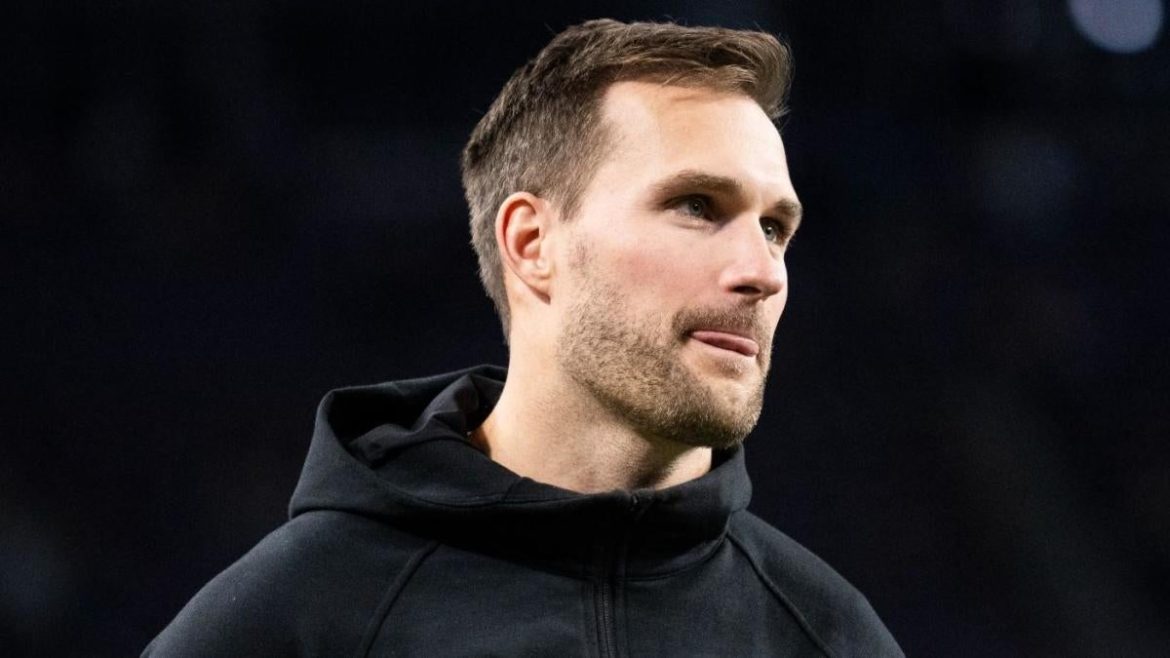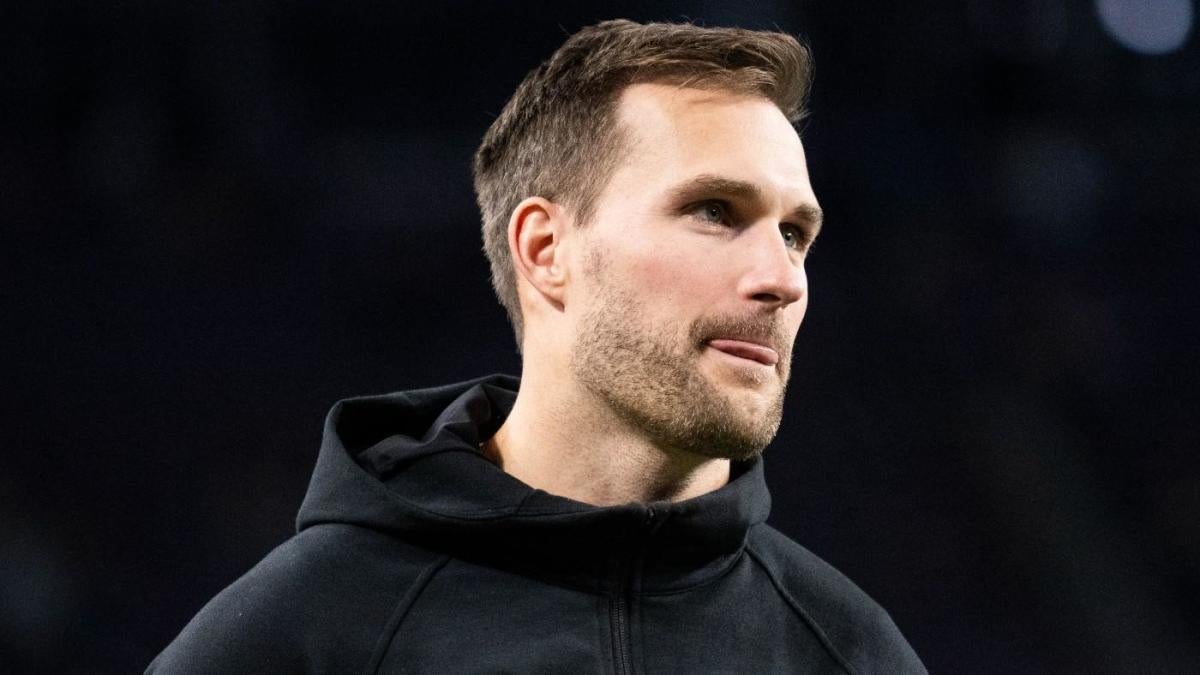Kirk Cousins’ NFL Future: An In-Depth Look at His Potential 2025 Landing Spots
As the 2025 NFL season approaches, the status of Atlanta Falcons’ quarterback Kirk Cousins remains a hot topic across sports media. Despite having signed a lucrative four-year, $180 million contract with the Falcons in the 2024 offseason, Cousins’ role has dramatically shifted, culminating in a benching favoring rookie Michael Penix Jr. This pivot has spawned widespread speculation about where Cousins might land next and raised broader questions about quarterback dynamics and team strategies around the league.
The Evolution of Cousins’ Position with the Falcons
Originally brought on to lead Atlanta’s offense, Cousins’ tenure has been unexpectedly turbulent. The Falcons’ commitment to Michael Penix Jr., taken eighth overall in the 2024 NFL Draft just weeks after Cousins’ signing, signaled a dual-quarterback approach that few anticipated. Although the strategy held potential for a visionary two-QB setup, the immediate benching after just 14 games indicates things have not unfolded as hoped.
Atlanta faces significant financial implications, including a large salary cap hit for 2025 tied to Cousins’ guaranteed money. This situation pressures the franchise toward finding a trade partner or outright release to mitigate salary constraints and roster planning challenges.
Primary Contenders for Cousins’ Next Destination
The Steelers emerge as the frontrunner among potential suitors. Pittsburgh’s quarterback situation has been in flux for some time, largely due to the prolonged uncertainty surrounding Aaron Rodgers’ future. Although Rodgers has now signed with the Steelers, the rapid shifts of NFL quarterback dynamics mean the Steelers remain in search of reliable options, especially since a rookie or backup could struggle to assume Week 1 starting duties given Pittsburgh’s array of offensive talent.
Sources suggest that should Rodgers’ status change or in scenarios involving injury, Cousins could provide a ready veteran presence capable of stabilizing the offense. The Steelers’ interest is amplified by their need to strike a balance between experienced leadership and developing younger players.
The Browns represent another logical landing spot, particularly considering their quarterback depth chart. With starting quarterback Deshaun Watson sidelined by significant injury concerns and a revolving door of competitors including Joe Flacco and rookies Dillon Gabriel and Shedeur Sanders, Cleveland’s quarterback room is fraught with uncertainty.
Acquiring Cousins could offer the Browns a proven, play-action capable veteran capable of steadying the offense while protecting their investment in younger players. Atlanta might be inclined to front $17.5 million of Cousins’ guaranteed salary, providing financial incentive for Cleveland to pursue a trade.
Though less prominently featured than Pittsburgh or Cleveland, the Saints could present a good fit. With a new coaching regime under Kellen Moore and an apparent need for quarterback stability, Cousins’ veteran experience would be valuable. Additionally, the opportunity to face the Falcons annually might appeal to Cousins, adding a personal edge to his motivation.
This option also reflects smart cap management by New Orleans, as they could use Cousins as a short-term solution while building for future seasons through draft development.
A reunion with the Vikings has been floated but seems less likely given Minnesota’s declared interest in other quarterbacks, particularly after ruling themselves out of the Aaron Rodgers sweepstakes. Nonetheless, relationships and fit should never be completely discounted, especially if other markets close.
Other Potential Landing Spots and Market Dynamics
Beyond these primary suitors, rumors have named teams like the New York Jets and Saints among others, though cap space, roster composition, and draft priorities limit realistic opportunities. Pitching Cousins against the backdrop of a rookie-heavy quarterback draft reinforces the ongoing demand for proven veterans who can manage NFL offenses effectively.
Key Market Considerations:
– Salary Cap and Contract Guaranteed Money: Cousins’ contract imposes significant pressure on both Atlanta and potential acquiring teams, necessitating creative financial solutions such as salary front-loading by the Falcons.
– Quarterback Injuries Across the League: The inevitability of quarterback injuries means teams are looking to stock reliable backups or even stable starting options capable of stepping in unexpectedly.
– Trade Timing Relative to NFL Calendar: Post-June 1 period and NFL Draft outcomes heavily influence trade feasibility and team roster maneuvers.
Analyzing Cousins’ Value and Fit
While Cousins has faced criticism for inconsistency and fluctuating performance, his experience, play-action prowess, and leadership qualities remain valuable assets, especially on teams navigating uncertain quarterback situations.
His ability to adapt quickly to new offensive schemes, demonstrated durability outside injury-prone seasons, and past success in leading teams to playoff contention underscore his potential impact as either a bridge starter or a seasoned backup.
Conclusion: Navigating a Transient Quarterback Landscape
Kirk Cousins finds himself at a crossroads emblematic of the NFL’s complex quarterback ecosystem. Atlanta’s strategic pivot towards a young quarterback, combined with significant financial constraints, sets the stage for a likely trade or release. The Pittsburgh Steelers and Cleveland Browns stand out as the best fits based on current roster needs and offensive philosophies, with the New Orleans Saints and possibly the Vikings as further options.
For Cousins, the choice comes down to landing with a team that offers opportunity and aligns with his veteran skill set, while for the acquiring teams, it is about leveraging Cousins’ proven ability as a stabilizing force in a quarterback-needy league where ready talent is a precious commodity. How this scenario unfolds will not only impact Cousins’ career trajectory but also provide a revealing snapshot of how NFL franchises manage star quarterbacks amid financial, developmental, and competitive pressures.





